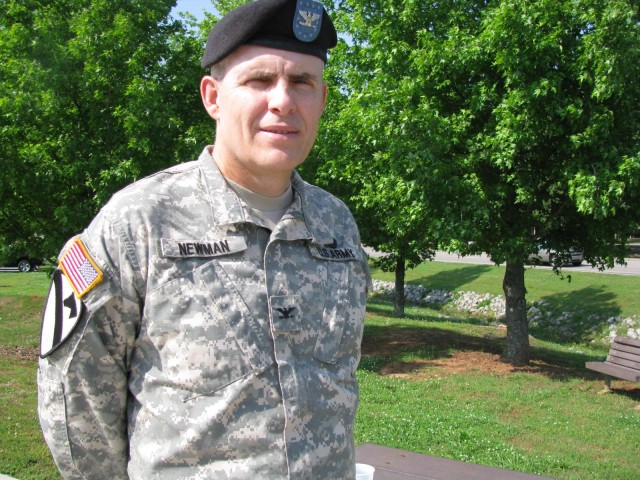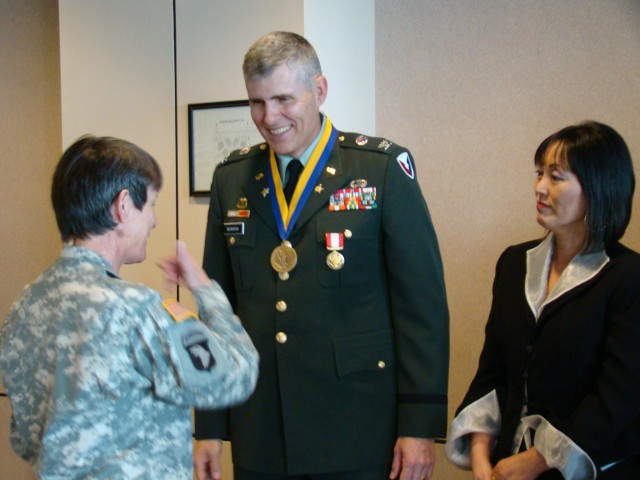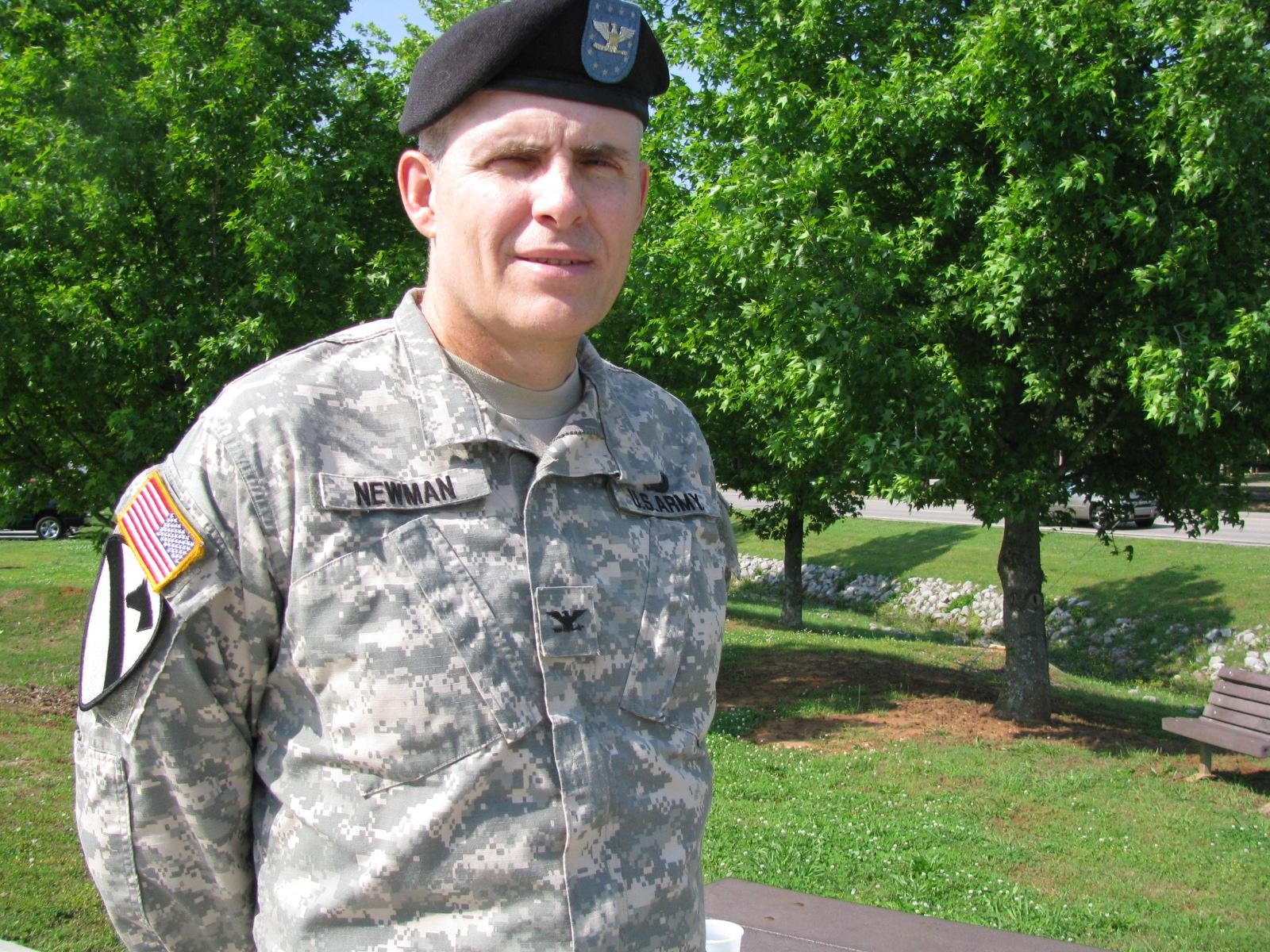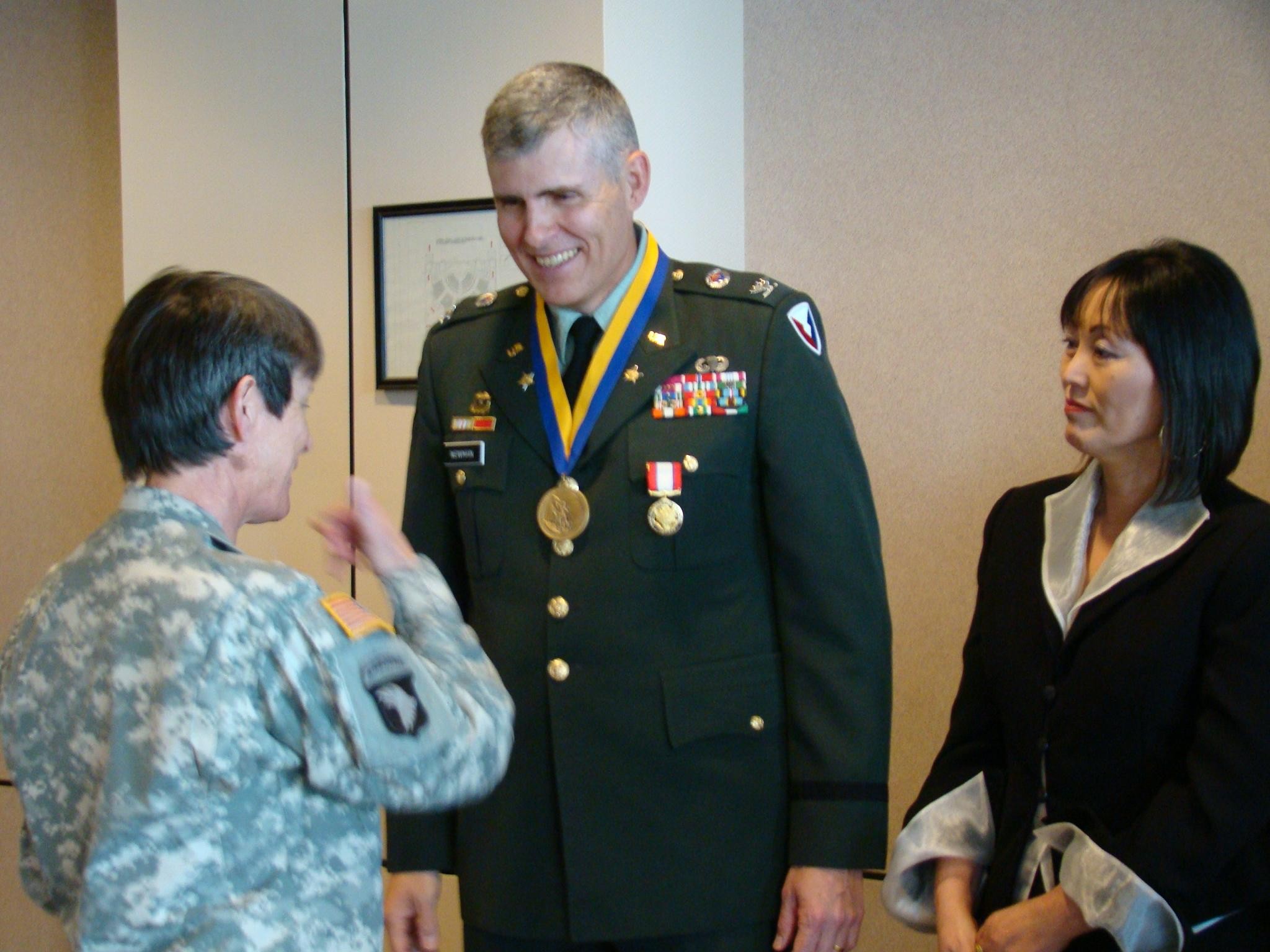For 30 years, the Army was a "good fit" for Col. Tom Newman.
And that fit has left a lasting mark on a man who had "no clue" that serving in the Army would encompass more than a way to pay for college and jump start a career.
"When I got out of college, I knew I owed the Army four years," he recalled. "I thought I would use those four years to learn about different career options and what I would have to do in those different careers and then I would complete my service.
"But in the Army I was welcomed in by different folks. They took me under their wing and kicked me in the rear. I was a young kid coming out of college with a good attitude and a good work ethic and not much else, and they gave me mentors and fine tuned what I had. The Army just fit me. It quickly became something bigger than myself."
So, when it came time to complete his obligation and walk away from the "green suiters," Newman instead took another assignment.
"I never looked back," he said.
These days, Newman is doing a bit of reminiscing. He recently retired from his job as chief of staff to AMCOM commander Maj. Gen. Jim Myles. His retirement ceremony May 8 culminated a career that included several command positions as a Quartermaster officer (logistics); service in Korea, Japan, Germany and the Sinai Desert; assignments at Fort Stewart, Ga., Fort Hood, Texas, and Fort Bragg, N.C.; deployments to Operation Desert Shield/Storm; service in Turkey during the early stages of Operation Iraqi Freedom and three years as deputy chief of staff at the Army Materiel Command headquarters before his assignment at Redstone Arsenal.
"I have really liked all my assignments because they've all been different and challenging," he said.
"If I had a favorite, I would have to pick Okinawa for personal reasons because of the uniqueness of the environment and my duties. I had a great boss and a great family situation in a good place. My oldest son was just going into kindergarten and my youngest son was a 1-year-old. We had ample time to take in the beach and sightseeing. Things did get harder as the kids got older."
Although the assignments were always challenging and rewarding, it was the moves that took their toll on Newman's family. During one particular time, when his three sons were teenagers, the family moved three times in three years.
"That's just the way the Army assignment process works," he said. "It involves sacrifice. It's a high price to pay. I chose to pay it."
Three years ago, as Newman was coming up on his mandatory retirement date, he purposely took an assignment that brought him to Redstone Arsenal.
"I knew this assignment would be a good way to finish my career. It's a good location and it is an interesting duty assignment," he said. "Different assignments and different opportunities come along at different times. I thought this was a good fit for me because of my experience. This is a very busy place with a lot of important activities going on and things that affect the long-term future of the Army. I thought I would be able to use my experience to help set priorities."
Newman has particularly enjoyed the challenge of his chief of staff role at AMCOM.
"There is a very unique set of missions here in support of the aviation and missile fleets of the Army," he said. "It's unique in the integration of program management and the acquisition side along with the sustainment side. There's a strong link with the industrial base here. It's all been new for me and a unique learning experience."
Newman admires many of the civilian employees he's worked with while at Redstone, and referred to them as "a jewel in this nation's crown," at his retirement ceremony. Civilian employees have been instrumental in his success as chief of staff under two different commanders - Lt. Gen. Jim Pillsbury and Maj. Gen. Jim Myles.
"I've had a couple of great bosses," he said of his time at the Arsenal.
"There is a wide variety of situations you deal with as chief of staff that makes the job very interesting. But I've really found it enjoyable to work with such smart, educated people who represent many different organizations here and throughout the community. At Redstone Arsenal, you have to be able to deal with a wide spectrum of challenges from strategic to minor tactical. I've done my best to help balance things and set priorities so the boss can be the most effective he can be."
Newman learned early in his career that a Soldier is only as good as their participation on the team.
"A Soldier has got to have a willingness to be part of the team," he said. "You can't have a 'me first' attitude. You have to be willing to help others and when the challenge gets too tough you have to be willing to accept help from others.
"A good Soldier has a sense of participation and a sense of obligation to assist this country and contribute to it ... It's not just a job where you draw a paycheck and quit when you want to."
Although young Soldiers are serving in a time that it is particularly dangerous, they are also serving in a time when Soldiers and families are benefiting from an Army system that provides the best training and equipment, and has learned what it takes to put families first.
"The Army doesn't send a Soldier on a mission unless they are ready and part of a winning team," Newman said. "Soldiers are very well-trained. But they are also under a lot of stress because of the pace of operations and the number of deployments. The jury is still out on how that will affect the Army in the long haul.
"The reality for a lot of younger Soldiers is they come back from a deployment, spend a year or a year-and-a-half training and then have to deploy again. The open question is: How long can they continue at that pace' These young Soldiers who are carrying the load are an inspiration to me and that's why I've always tried to give my best to support them."
One of those inspiring Soldiers is Newman's oldest son, Capt. Tony Newman, who is stationed at Fort Bragg. He and his wife are expecting their first child in September, just a few months before Tony Newman is scheduled to deploy for the second time.
Newman hopes his son's wife and child will benefit from the extensive family-oriented programs the Army now has in place for families living through deployments.
"When I first deployed in 1982 to the Sinai Desert, the Army had no mechanism to support families. There was no family readiness. Families were pretty much on their own," he recalled.
Since his first deployment, Newman's wife, Yong Sun, has been instrumental in helping the Army develop family support programs.
"Over the years, the Army has really done well with taking care of Soldier families. And that helps with readiness," he said.
In comments made at Newman's retirement ceremony May 8, Myles described the colonel as "a great leader of our formation."
"We've been blessed way, way beyond what we deserve. I'm glad to be able to call you friend, not because of what you've done, but because of who you are," Myles said.
Looking back on the "good fit" he had with the Army, Newman, who does plan on pursuing a second career in the civilian arena, said he has been rewarded for the hard work and sacrifices he has made in support of the Army and the nation.
"It's not about what I've given to the Army, but what the Army has given me," he said as his retirement ceremony. "It's more of the Army's contribution to my life ... the discipline, the leadership. I wouldn't have had these had I not been in the Army."
Editor's note: Sofia Bledsoe of AMCOM/Garrison Public and Congressional Affairs contributed to this story.




Social Sharing